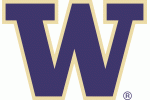At Wembley on Sunday two of the smallest and most inconsequential NFL teams of the past decade, the Jacksonville Jaguars and the Buffalo Bills, played out a minor classic in front of 84,000 people. Next weekend, another sell-out crowd will revel in the whole fist-bumping, XXL jersey-over-hoodie wearing, Lite beer-slurping experience all over again when the Kansas City Chiefs and Detroit Lions come to town.
Let that marinate for a moment. We have had two NFL games in London in eight days involving four buck-average teams, and that’s being kind. But despite tickets costing between £37.50 and £105 a pop, [~$60 to $160] the games have been sellouts.
How many sports – football aside - could sell out Wembley twice within a week? And how many could do it with teams of the equivalent standard of the Jaguars, Bills, Chiefs and Lions, who between them have won a grand total of eight out of 28 matches this season?
It’s the latter detail which adds intriguing nuance to the will-they-or-won’t-they debate which has flared ever since American Football jetted into London for its first International Series match in 2008.
In the past the NFL has usually ensured that category A stars or fan-favourite teams were on the bill. After all, funnelling Tom Brady or the San Fransisco 49ers to London is a cast-iron way to guarantee a sell out.
But the Jaguars – Bills game felt like the NFL taking the stabilisers off. It was as if they were saying to themselves, right – shall we find out whether the game is popular enough now that we can put any two sides on at Wembley and the games will sell out?
It is the latest of a series of stress-tests the NFL has conducted to assess the robustness of the sports’s popularity in Britain. The three early kick-offs this season, for instance, are testing whether there is the appetite in the United States to watch matches from brunch – or before on the Pacific coast – through to bedtime. And it also lets them see if more NFL fans in Asia will watch if a game is put on at a more reasonable hour.
So far it appears that American Football in the UK is hardier than many of us imagined. You wouldn’t naturally pick the Jaguars to play at Wembley every year, for instance. For years they have been a young team whose spring appears to be on the horizon, but their calendar remains stuck in late February. Since 2012 they have won only 11 out of 55 regular-season matches. They arrived at Wembley having only one once this season yet still the crowd roared them on. And if London can get behind the Jaguars in the bad times, what would they do if the going ever got good?
Opinions vary, but those I spoke to at Wembley thought there were more people in Jacksonville Jaguars jerseys both on Sunday and when the Miami Dolphins faced the New York Jets on 4 October than compared to a year or two ago. And that might be significant too. Because if here were to be a London franchise, the Jaguars – who are owned by Fulham’s owner Shahid Khan – are probably the most likely candidate.
More broadly, the sport’s chains appear to be moving in the right direction too. Last week it was confirmed that there would be at least four regular-season games in the UK by 2018. The NFL also reports that Sky’s average audience for the 6pm and 9pm Sunday games has doubled since 2007. Meanwhile, in a fortnight the BBC, which has broadcast both Wembley games this season, will start a weekly highlights show.
The NFL also claims that more than half a million people turned up on Regent’s Street in central London on Saturday to enjoy what its website called a day “packed with interactive drills, giant inflatable tackling dummies, food and drink galore and full-throttle cheerleaders”– which served as a first-hand glimpse at just how vast the sport has become overseas in recent days.”
That is wildly over-egging it, of course. How many of those on Regent Street were accidental visitors who were there only for the shopping and stumbled on a scene as American as apple pie? Still, attracting loose interest by osmosis probably ticks another marketing box.
So what now? Despite George Osborne and Boris Johnson both talking up the possibility of a London franchise by the end of the decade, that is almost certainly premature.
Many barriers remain. There is the travel, with all that pinging back and forth through time zones. Then there are the logistics of shipping tons of team equipment, which is often sent months in advance to London (how would that work in the play-offs?) In addition there is the lack of a permanent stadium, even if Tottenham are keen. And more fundamentally still, the issue of attracting more converts in the UK. How many people in Britain could name a single NFL player?
And while the NFL is also making all the right noises about a London franchise, their route to achieving it remains fuzzy. That might be no bad thing, mind. Because as things stand, the relationship between American Football and the British public is rather like a well-meaning but slightly mismatched couple, whose friends aren’t convinced it will work out. Yet, nearly a decade on, the two sides are still inching together. With more time they could yet decide each other is a keeper.







